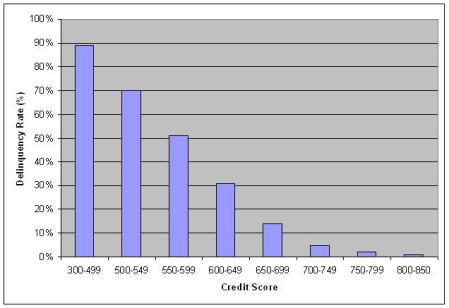Two weeks ago Equifax was offering a free credit score for the first 10,000 applicants. Fortunately for me I was able to take advantage of this offer. It was very interesting to see my credit score as I was closing on my condo that same week. Equifax calculated my credit score to be 723 and put me into the “Good” score. Equifax Scores and Classifications Equifax scores range from 300 to 850. My score of 723 puts me above 50% of US consumers. Equifax has five categories to classify your credit: bad, not good, good, very good and great. Bad ranges from 300-559, not good ranges from 560-659, good ranges from 660-724, very good ranges from 725-759 and great ranges from 760-850. Looks like I just missed having a very good credit score by two points. Factors Affecting my Score There are four categories that Equifax looks at when determining a credit score. These four categories are amount of debt, amount of new credit, payment history and length of credit history. I was rated as good in the amount of debt category, very good in the amount of new credit category, great in the payment history category and not good in the length of credit history. Factors Hurting my Score The following factors are hurting my score with the first factor having the greatest negative impact.
Factors Helping my Score The following factors are helping my score with the first factor having the greatest positive impact..
How Lenders View my Credit Score According to Equifax, my credit score of 723 leaves me with a risk rate of 5%. The higher the credit score, the lower the risk rate. The risk rate is also defined as a delinquency rate. Equifax defines the delinquency rate is defined as the percentage of borrowers who reach 90 days past due or worse on any credit account over a two year period. The following chart shows how the delinquency rate varies with credit score. Conclusion I was very lucky to stumble on a free copy of my credit score. Overall, I am very happy with Equifax’s presentation and explanation of my credit score. I don’t necessarily agree that the activity of my revolving credit accounts has been low and if I hadn’t already received my loan I might question the accuracy of that factor. Also, I completely disagree that closed credit card accounts factor into a credit score. Similarly, if closed credit card accounts factor into a credit score, why don’t paid off loans? I have completely paid off a hefty school loan and it is not reflected in my credit score. In the end, I would recommend getting a copy of your credit score if you are taking out a loan for a large purchase in order to maximize your score. |
The Anatomy of My Credit Score
Posted in Financial Status, Mortgage, Personal Finances.
– October 12, 2008
2 Responses
Stay in touch with the conversation, subscribe to the RSS feed for comments on this post.











I must compliment you on your assessment of your credit score. You seemed to have taken quite a bit of time to learn about it. I have just a few comments that might help you in the future.
Firstly, not all credit scores are the same. Equifax is the only one that uses the true FICO score which is what most lenders use. Trans Union and Experian use a simulated score which tends to be higher and misleading. As for your balance not reflecting your purchase, most likely the creditor has not reported to the bureaus as of yet. This is generally done once a month and your score can and usually will change once it is updated. Keep your balances under 30% of your credit limits and you will be fine.
Keep up the good work!
Regards,
Gary
https://www.peoplescreditservices.com
I recently have had some credit problems. I liked my credit cards waaay too much. I think the best thing you can do to recover is to allow yourself enough time to straighten everything all out. Nothing happens overnight, especially fixing a credit score.